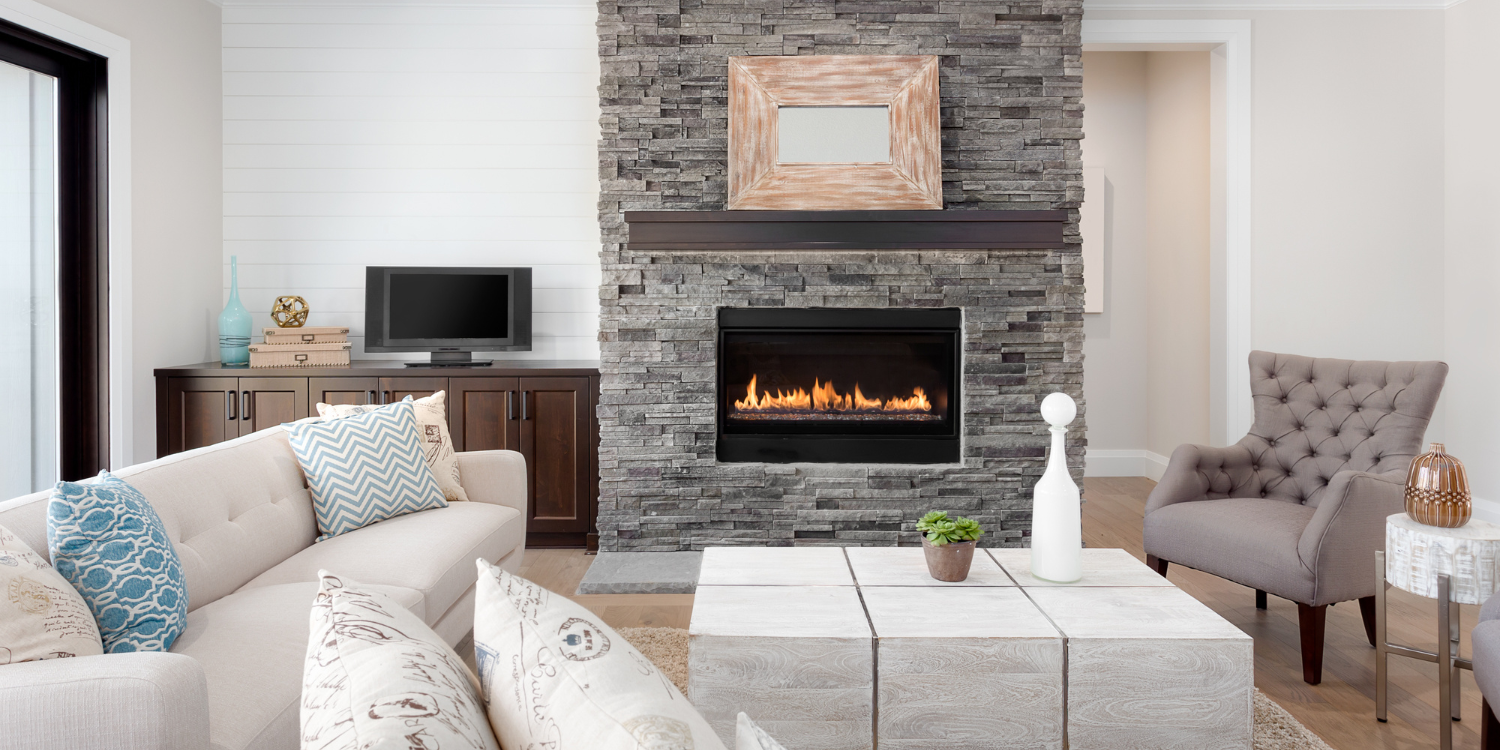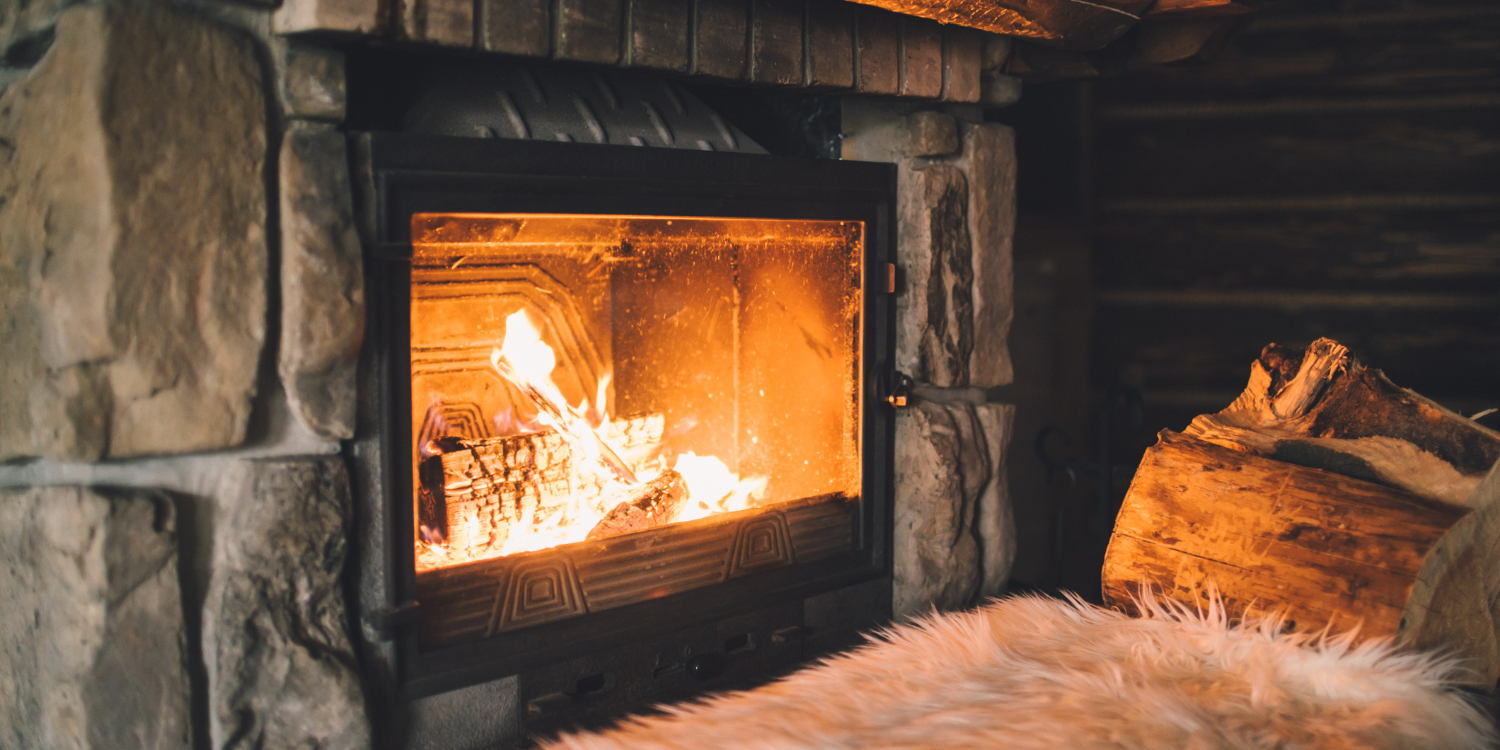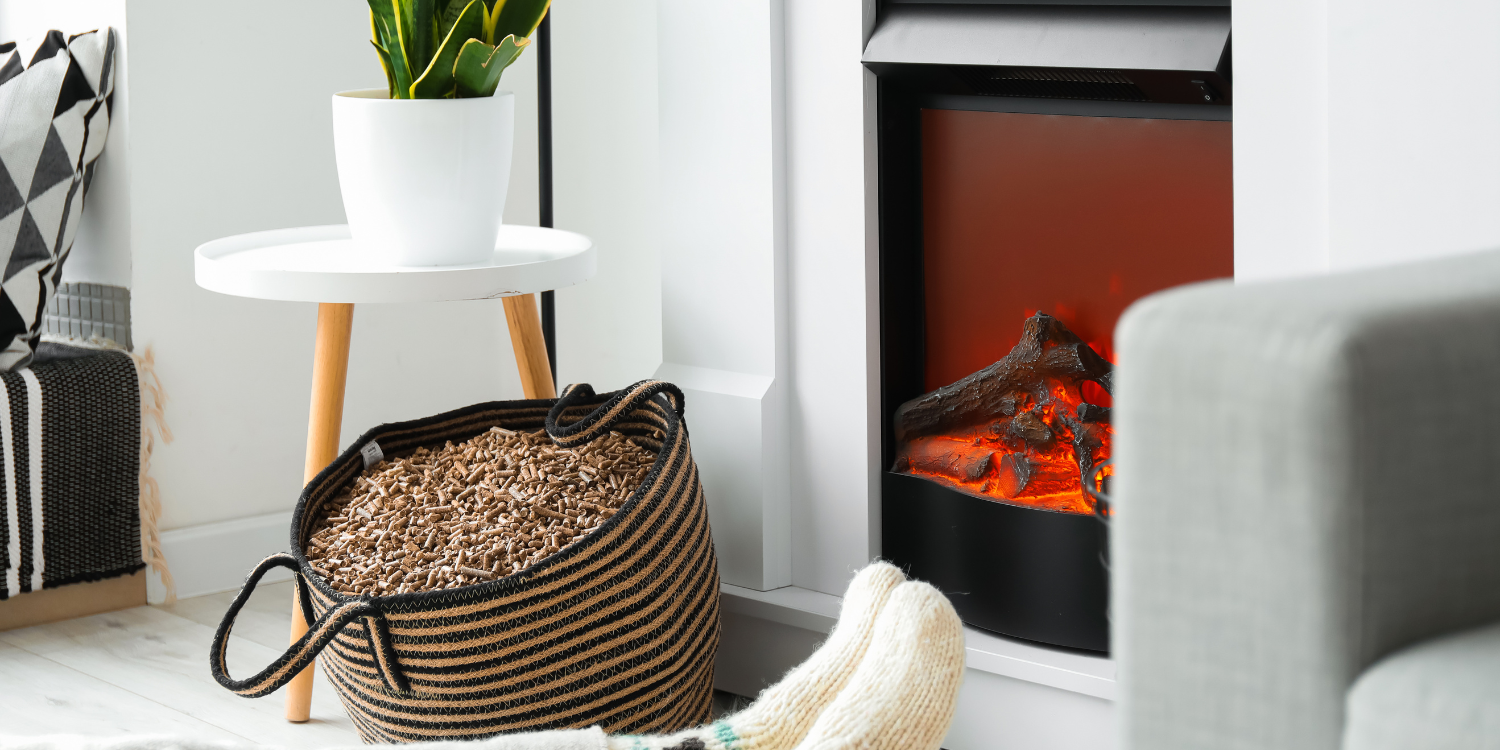Fireplaces can help heat your home in the winter and provide the cozy ambiance we all yearn for when the snow settles in. That said, you don’t want to have to pay more than you need to for fireplace heat. Below, we discuss the most efficient fireplaces.
Choosing the Most Efficient Fireplace
If you’re looking for a new fireplace to install, you’ve got three main types of fireplaces to choose from.
- Wood-burning fireplaces
- Gas fireplaces
- Pellet fireplaces.
This, of course, leaves out gel and electric fireplaces which, in our opinions, are not worth the investment.
While you’ll want to consider important factors like the aesthetic and installation costs with your new fireplace; one thing you don’t want to write off is their efficiency. The more efficient your fireplace is, the smaller your environmental footprint will be. Let’s compare the efficiency of the following three types of fireplaces:
The Efficiency of a Wood-Burning Fireplace
Wood-burning fireplaces tend to provide the most welcoming atmosphere out of all the fireplace options. However, as you expected, they aren’t as efficient as your other high-end options.
Yes, you don’t need to use gas or electricity to run a wood-burning fireplace, which means they certainly won’t affect your utility bills. However, stock pretty large stacks of wood as fuel – and that wood needs to be dry and treated to burn properly. This can be an advantage if the power is out and you need a way to warm your home. However, wood-burning fireplaces tend to lose more heat than they generate, making them a much less efficient option. They also produce the most smoke and creosote out of the three.
That said, a wood fireplace is still a truly beautiful thing.
The Efficiency of Pellet Fireplaces
Pellets are a type of fuel source used by, you guessed it, pellet fireplaces. Pellets contain compressed sawdust and tend to burn hot and clean. Pellet fireplaces are controlled via thermostats and contain blowers to circulate the heat generated.
Pellets are more efficient than wood. Some pellet stoves burn as efficiently as 98%. They also require electricity to run, which means you’ll notice a slight, slight bump in your utility bills as you use it. They also rely on multiple motors as well as motherboards, which means there are more parts that can break.
The Efficiency of Gas Fireplaces
A gas fireplace can be operated without the use of electricity and doesn’t need a chimney like wood-burning fireplaces do.
Gas is clean, easy and more economical than wood-burning and pellet fireplaces. Gas fireplaces can be controlled by remote or thermostat allowing the fireplace to be turned on and off immediately. The use of gas also makes them much more efficient, not to mention that gas fireplaces emit fewer particulate matter.
The Final Word
When it comes to efficiency, gas fireplaces have wood-burning fireplaces and pellet fireplaces beat. The use of gas is just much more efficient than having to burn wood or pellets, not to mention that a gas fireplace doesn’t require electricity to run. Gas fireplaces are also much more environmentally-friendly since you aren’t creating smoke or burning wood.
While there are many other pros and cons to consider for all types of fireplaces, the efficiency of the fireplace is something that you should seriously take into account. For more advice on buying the right fireplace for your home, or for more information about gas fireplaces, be sure to contact your local ClimateCare member today.









